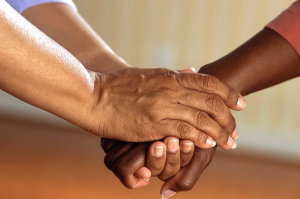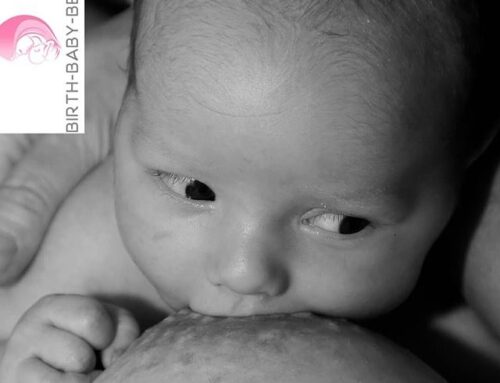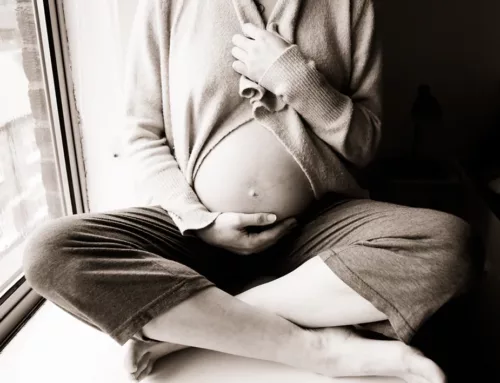
Supporting the Birth of a Mother
For most women becoming a new mother is a joyful event, at least some of the time, but for many this time in their lives can be filled with fear, anxiety and for some total terror.
The birth is often treated as a one-off event but the reality is that birth, and the way we experience birth, can impact and shape the rest of our lives.
According to recent studies, up to 18% of women who give birth suffer from some kind of birth trauma and the actual figures may be even higher. Some women will process this trauma in the days and weeks that follow but for some mums this will be an emotional rollercoaster that can last months and even years.
Before the lockdown, Joe Duffy radio show highlighted this issue with stories from women who had recently given birth and some who had become mothers as long as fifty years ago. Post-traumatic Stress Disorder following birth can manifest itself in different ways and can often be misdiagnosed as postnatal depression; sometimes they can go hand in hand.
You are there with your beautiful newborn baby surrounded by balloons, flowers and cards; everyone happy and excited, telling you how beautiful the baby is and how great it is that it’s all over, but you can barely breathe. No one understands and no one hears. You are supposed to be in ‘baby bliss’. You try to tell people how you felt during the birth. In pain, scared, in danger, violated, alone, overlooked, ignored, judged, out of control, not believed. You hear things like “but look at her, wasn’t she worth it?” or “haven’t you got a beautiful, healthy baby?” and “haven’t we all been through it?” dismissing your feelings, making you feel more isolated, alone, and guilty. You are exhausted from the birth and yet you can’t sleep. You have nightmares. You have flashbacks. You don’t want to leave the house and you don’t want to see anyone because everyone else is happy, with their perfect lives displayed on Facebook or Instagram and you are crumbling apart.

Anger, guilt and feelings of failure overwhelm you. You feel you are not enough.
“I was in severe pain after my baby was born. I told the midwives and my family and was given Paracetamol. Six weeks later, I still couldn’t sit down. I couldn’t sleep or sit up and feeding the baby was torture. No one believed me. I was having night sweats and nightmares and flashbacks of the birth. Eventually I went to a private consultant who said I had a broken Coccyx. Once I was believed, I started to improve.”
Over the following five to six weeks after birth your brain can process the traumatic event as a normal memory and things may go back to normal, but for around 9% of new mothers there will be a lasting emotional effect which can trigger anxiety attacks and impact many areas of their lives for years.
“My birth was so fast! Everyone said I was so lucky that I didn’t have hours of labour, but I really thought I was going to die. I was terrified and every time I looked at my baby I began to shake. In the hospital, I was hailed as a hero but I couldn’t even talk about what happened. I knew I should have been delighted and I didn’t know why I was so upset. It wasn’t until we started planning another baby that I realised I needed to get some help. I hired a doula and she suggested going for some treatment. Best decision I ever made.”
A healthy baby is the most important thing but it’s far from the only thing that matters and studies show that the way women are treated and respected during the birth of their child impacts them for a very long time. Words in the labour room and afterwards matter a great deal. During birth, women are at their most powerful, but also their most vulnerable. Their senses are heightened and they are instinctively on high alert.
Women often speak of a sense loss after a traumatic birth. Loss of control, loss of autonomy, loss of dignity and very often these losses are not related to the birth outcome but rather to how they were treated and spoken to whilst in labour or in the time immediately after.
You know you love your baby but how can you love yourself?

Telling a woman that everything turned out alright in the end undermines her feelings of having had a negative experience and invalidates the distress she feels. This can leave women stranded in a place of isolation because they feel they are not entitled to feel this way and they don’t know how to feel any other way.
In these uncertain times or COVID-19, lockdown, and unprecedented restrictions within maternity services, please explore all of your support options. Yes, a doula can provide invaluable help, but there are other avenues as well. Please ask for the help you need. And if you have not been affected by the lack in services for new and expectant families, please check-in with any new mothers and parents in your circle and make sure they feel supported and included.
Peer support is a valuable tool in overcoming trauma.
And the effects of this pandemic are still to be known, understood, and reckoned with.
As doulas we often support people who have had traumatic births in the past. A common theme for them is feeling they do not have a voice or having their concerns belittled. The maternity system, as it is currently structured, has little or no provision for women who have had a traumatic birth. Contact the Doula Association of Ireland for doula support from trained doulas around the country who can safely debrief birthing experiences and for contact numbers for organisations that can help. Organisations such as AIMS Ireland, Nurture and Aware are available to assist women in the perinatal period. I myself am a birth trauma resolution practitioner and run clinics in Galway, Dublin, and Sligo, so please feel free to reach out for support if you need it.
Bairbre Brooke is a Birth and Postpartum Doula and a member of the Doula Association of Ireland. She also served as the DAI’s Chair for 3 years.





